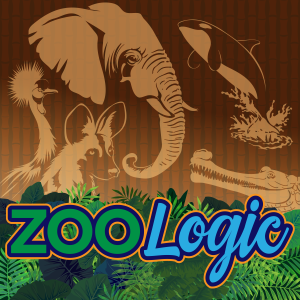
Why do people risk personal injury or death just to get a photo next to wild animals, even those living in the relative safety of a zoo or aquarium? What is it about protective barriers, walls, or fences designed to bring animals and the viewing public safely together in close proximity that communicates to some visitors, "sure, climb over"? A recent incident of a zoo visitor injured for ignoring the safety barriers just to get a selfie with an adult jaguar went viral and highlights the importance of human perceptions of animals and how well they align with reality. More importantly, how do our perceptions or misperceptions of animals impact our feelings and behavior, especially with regards to preserving species under threat of extinction?
Dr. Susan Clayton professor of psychology and environmental studies at the College of Wooster discusses how human perceptions of animals is affected by things such as TV, youtube, and early learning experiences with animals at the zoo. The nature of that education can affect whether we objectify animals or view them with respect. She argues that zoos are important institutions because they hold the promise not only to educate and inspire people about animals through proper messaging, but to change human behavior in achievable increments to protect the natural environment.
www.facebook.com/ZooLogicpodcast/
www.iReinforce.com
www.wooster.edu
www.WildlifeWorld.com
www.FOX10Phoenix.com
www.KTAR.com
More Episodes
 2019-06-20
2019-06-20
 2019-06-13
2019-06-13
 2019-06-06
2019-06-06
 2019-05-30
2019-05-30
 2019-05-23
2019-05-23
 2019-05-16
2019-05-16
 2019-05-09
2019-05-09
 2019-05-02
2019-05-02
 2019-04-25
2019-04-25
 2019-04-17
2019-04-17
 2019-03-28
2019-03-28
 2019-03-21
2019-03-21
 2019-03-14
2019-03-14
 2019-03-07
2019-03-07
 2019-02-28
2019-02-28
 2019-02-21
2019-02-21
 2019-02-14
2019-02-14
 2019-02-07
2019-02-07
Create your
podcast in
minutes
- Full-featured podcast site
- Unlimited storage and bandwidth
- Comprehensive podcast stats
- Distribute to Apple Podcasts, Spotify, and more
- Make money with your podcast
It is Free
- Privacy Policy
- Cookie Policy
- Terms of Use
- Consent Preferences
- Copyright © 2015-2024 Podbean.com






